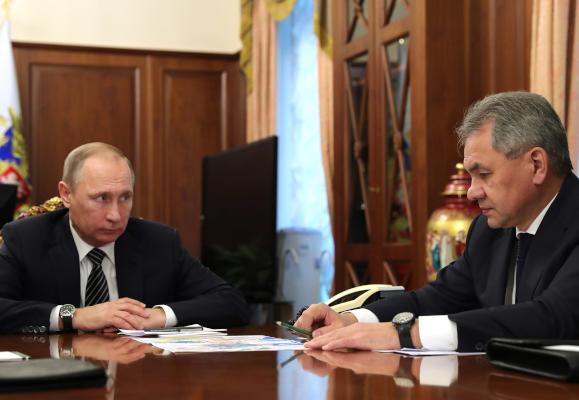The Russian plane and the assassination of the Russian Ambassador to Turkey are events that are not deemed critical enough to make the Kremlin change its policies. Rather, the continuation of regional and international conflict and the insistence of the opposition on war are two factors that are more important and significant. Even after Aleppo fell, and the Russians, Iranians and the Syrian regime’s forces captured it, the opposition did not raise white flags, and everything we see indicates that we will begin another year without celebrating a real triumph.
In addition to the Russian authority’s interest in holding propaganda motivated celebrations in areas that it has captured in Syria, it also appears to be keen on cleaning up and reinstating orderliness to the Syrian regime under the umbrella of negotiations for a political solution, a task which seems unlikely to succeed so far.
In recent days, I have tried to understand the nature of the upcoming Russian approach and what direction it will go in after recent major events. The fall of Aleppo and the end of Barack Obama’s presidency in Washington means one of two things. It could mean that Moscow is determined to continue with the war, enable the Syrian and Iranian regimes to regain all of Syria and achieve complete victory by force which will make next year another year of war. Alternatively, it could mean that Russia wants to impose an intermediate political solution that takes advantage of its military presence. After all, its power saved the Syrian and Iranian regimes from being defeated in the war after it entered with its intelligence services, air force and involvement in diplomacy at the Security Council.
In this regard, I have heard two contradictory opinions. One confirms that Moscow is ready to do what Washington failed to do – bring together two warring sides, the Syrian opposition and the regime, and form a mixed government that discards the marks of the two sides. The other opinion refutes this and insists that Moscow has not changed any details of the proposal that it put forward two years ago; a regime led by Assad that gives marginal positions to the opposition and promises to reduce the influence of the central authority on opposition-held areas.
The latter solution confirms the authority of Assad because all future promises regarding elections and the independent powers of provinces are delusive temptations from a repressive regime that did not hesitate to kill and displace millions of people.
One of the people whom I was listening to said that the Syrian opposition has become ineffective since Turkey retreated and that it has accepted the results of the war in Aleppo. He also said that Ankara now considers it a priority to fight Kurdish separatists and ISIS, and accordingly the opposition must accept whatever prominent powers are generous enough to offer it at the negotiation table.
Some are of the opinion that the situation in Syria has imposed itself on countries in the region, including Turkey and the Gulf countries, and that the countries in the region did not invent the crisis. Therefore, the lights won’t go out simply because the rebels have left Aleppo or because Turkey has stopped supporting the Syrian opposition.
One-third of Syria remains outside the control of the Syrian regime. A part of this area is strategic such as the Damascus countryside which the Syrian regime’s forces and Iranian militias have started to bomb again. Thousands of fighters, whether they are members of the armed Syrian opposition or terrorist groups, will make the plan for negotiations and the imposition of a Russian or Iranian formula for governance difficult to implement on the ground, unless they include a minimum of the main political demands.
Even if Russian negotiators really decide to adopt a moderate solution and present appropriate suggestions to the opposition, this will mean the possibility of an end to the war. What would remain are terrorist groups that are deterrable if there is popular support for the political solution.
We cannot be certain about the direction of events during the coming weeks, but there is no doubt that for now, only Russia and neither Washington nor Iran will decide, as it is capable of pushing matters towards a continuation of fighting or an end to the war.
I do not expect that even Iran, despite its strong commitment to the Syrian regime, is interested in the continuation of the war that has cost it a lot at home and abroad. Iran is aware that it has failed to bring the war to an end and that this has forced it to rely on Russia’s power. The regime in Tehran will find that returning with half a victory is better than continuing to fight in the middle of a region that is completely hostile to it.
